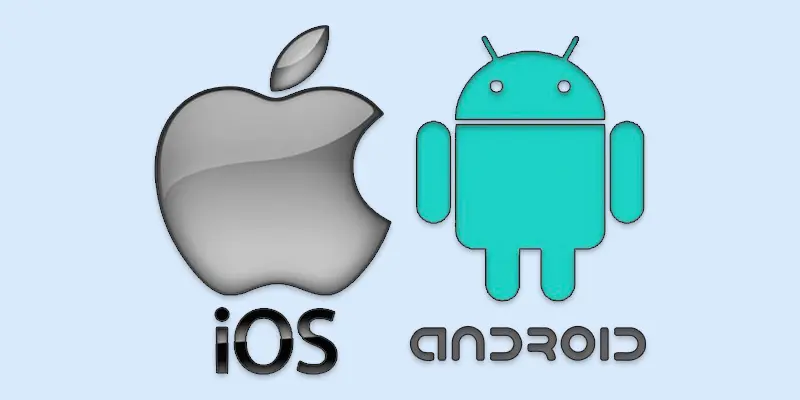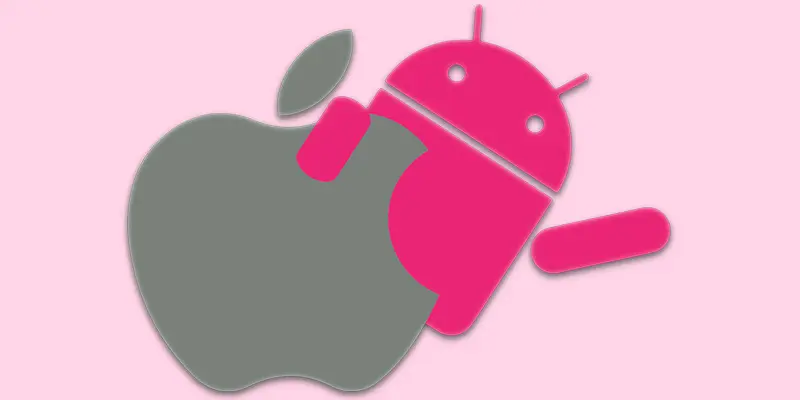Android vs iOS – How to Pick the Right Operating System
Published: 28 Jan 2025
Android vs iOS Operating System
Choosing between Android vs. iOS can be overwhelming, especially with so many opinions and features to consider. Did you know that Android powers over 70% of smartphones worldwide, while iOS runs exclusively on Apple devices like iPhones and iPads? With so many choices, it’s easy to feel stuck. Maybe your Android phone feels slow, or your iPhone lacks customization options. No matter where you stand, understanding the key differences in performance, security, and features can help you make the right choice. Let’s break it down to see which system truly fits your needs.

| Android | iOS |
|---|---|
| Android is used by brands like Samsung, OnePlus, and Google Pixel. | iOS is used exclusively on Apple devices like iPhones and iPads. |
| Offers extensive customization options: change home screens, install custom ROMs, and use third-party launchers | Limited customization options: mainly focused on consistency, with fewer options for tweaking the interface. |
| Performance varies depending on the device; higher-end models like Pixel 6 perform excellently. | Optimized for Apple’s hardware, ensuring smooth and consistent performance across all iPhones and iPads. |
| Google Play Store offers a wide variety of apps, but app quality can be inconsistent. | The Apple App Store provides high-quality apps with strict vetting processes. |
| Security depends on device manufacturer; Google Play Protect scans apps for malware, but security risks are higher. | Known for strong security with regular updates, strong app vetting, and advanced privacy features. |
| Available on a wide range of devices from budget to high-end, with options for every budget. | iPhones are premium devices with limited price options; more expensive than many Android phones. |
| Updates depend on the manufacturer and carrier; some Android devices receive updates later. | Regular and timely software updates directly from Apple for all supported devices. |
| Varies across devices; high-end Android phones like the Samsung Galaxy have good battery life. | Generally good battery life, especially in newer iPhones, thanks to efficient power management. |
| Offers a larger selection of free apps, but the quality varies. | More polished, high-quality apps, but often at a cost (many paid apps). |
| Less seamless than iOS; Android integrates well with Google services and third-party devices. | Excellent ecosystem integration across Apple products (iPhone, iPad, Mac, Apple Watch, etc.). |
| Offers the ability to flash custom ROMs and install custom operating systems. | Not possible to install custom ROMs, as iOS is more closed off. |
| Google Assistant offers great voice recognition and integration with various devices. | Siri is integrated with iOS but less versatile compared to Google Assistant. |
| Android supports multitasking with split-screen views and app switching. | iOS supports multitasking but with fewer options than Android (e.g., Split View for iPads). |
| Google Drive integration for cloud storage and backup. | iCloud for seamless storage across Apple devices. |
| Works with many third-party devices, offering a wide selection. | Limited to Apple devices, but all work seamlessly together. |
| Highly customizable UI, but this can make it feel cluttered on some devices. | Clean, simple, and consistent UI across all devices |
| Updates can be inconsistent, as not all Android devices get the latest version at the same time. | Timely, regular updates for all supported devices |
| Allows full control over file management; you can easily transfer files between devices. | Limited file management compared to Android, but easier to manage via iCloud and Finder. |
| Android has a vast range of gaming options and more flexibility for downloading games outside the Play Store. | iOS has a highly optimized gaming experience with a focus on premium, quality games. |
| Offers robust accessibility features like magnification gestures and screen readers. | iOS also has excellent accessibility features, including VoiceOver and customizable text sizes. |
| Can range from very affordable to expensive, depending on the brand and model. | Generally higher upfront costs, but iOS devices are durable and retain value longer. |
| Support depends on device and manufacturer; some phones only get updates for a few years. | Apple provides long-term software support for older devices, typically up to 5 years or more. |
| Fully customizable widgets and home screen layouts | iOS allows limited widget customization, but it has become more flexible in recent updates. |
| Android offers more flexibility for developers but can lead to inconsistent app quality. | iOS provides a more controlled environment, leading to higher-quality apps. |
| Android dominates the global market with a larger share of users. | iOS is particularly popular in the U.S., Europe, and other high-income regions. |
| Android supports various calling apps (e.g., WhatsApp, Skype, Google Meet). | FaceTime is widely used on iOS for voice and video calls. |
| Works with a wide range of smart home devices through Google Home. | Works best with Apple’s HomeKit, but fewer compatible devices than Android. |
| 5G is supported across a wide range of Android devices, including budget models. | iPhones support 5G starting from the iPhone 12, but it’s limited to premium models. |
| Repairability varies; third-party repair shops can often help with Android devices. | iPhones are harder to repair, and Apple’s repair service can be expensive. |
| Best for users who want more flexibility, customization, and budget-friendly options. | Ideal for users who prefer a polished, consistent experience with strong privacy and security features. |

Conclusion Android vs ios Which is Better
Choosing between Android and iOS depends on what you need and prefer. Android offers more choices and flexibility, while iOS provides a smooth and reliable experience. Think about what features are important to you, like customization, security, or performance. Take your time, compare the options, and pick the one that fits your lifestyle best!

FAQS – About Android vs iOS
Android and iOS are two operating systems used in smartphones. Android is developed by Google and is used by many brands like Samsung, OnePlus, and Google Pixel. iOS is created by Apple and is only available on Apple devices like iPhones and iPads.
Android has the largest user base globally, with over 70% of the market share. iPhone (iOS) users make up around 28% of the smartphone market, especially popular in countries like the U.S. and Europe.
iOS is not available on Android phones because it’s exclusive to Apple devices. Android and iOS are completely different platforms and cannot run each other’s systems.
Approximately 70-72% of smartphone users prefer Android due to its variety and affordability. Around 27-29% choose the iPhone for its premium features and seamless experience.
Android is better for those who want customization, affordability, and a wide range of device options. It lets you personalize your phone, choose from budget-friendly to high-end devices, and offers more flexibility.
iOS is generally considered more secure due to Apple’s strict app reviews and updates. Android is improving in security but is more vulnerable because of the variety of devices and app sources.

- Be Respectful
- Stay Relevant
- Stay Positive
- True Feedback
- Encourage Discussion
- Avoid Spamming
- No Fake News
- Don't Copy-Paste
- No Personal Attacks

- Be Respectful
- Stay Relevant
- Stay Positive
- True Feedback
- Encourage Discussion
- Avoid Spamming
- No Fake News
- Don't Copy-Paste
- No Personal Attacks





